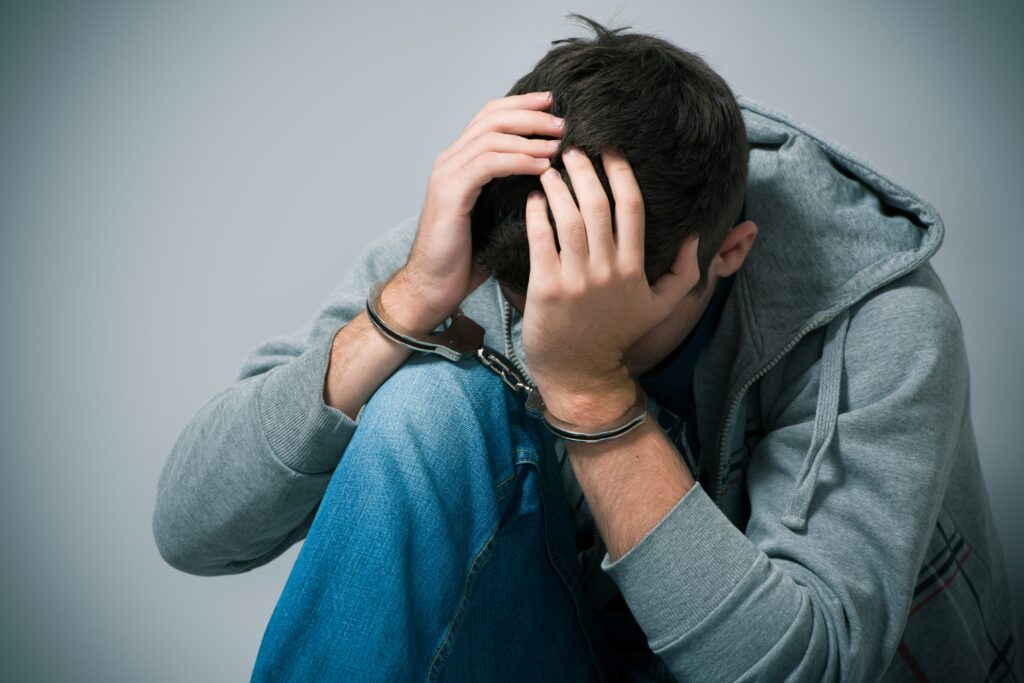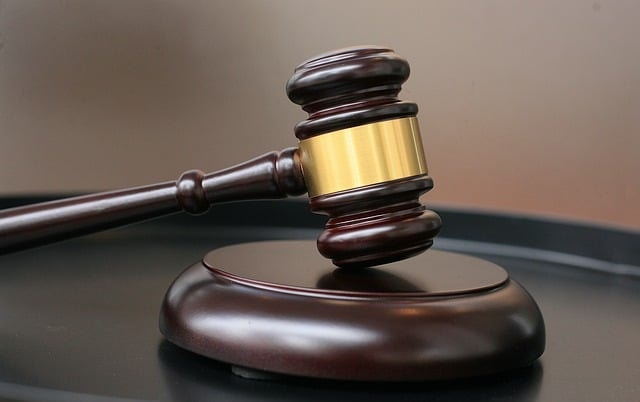When your child faces legal challenges, choosing the correct juvenile defense attorney becomes crucial. We provide a detailed examination of the Utah juvenile justice system from the perspective of Levitt Legal. We’ll delve into the vital legal protections, common offenses, the significant role of juvenile attorneys, extensive rehabilitation programs, and the particular court processes that shape how juvenile cases are managed.
Key Takeaways
- Focused on Positive Change: Utah’s juvenile justice system is uniquely designed to prioritize rehabilitation over punitive measures, aiming to help young offenders transform their behaviors and reintegrate successfully into society. This approach helps reduce the likelihood of recidivism by addressing the root causes of delinquent behavior.
- Robust Legal Protections for Juveniles: The system provides juveniles with strong legal protections such as confidentiality of records and the right against self-incrimination, safeguarding their future opportunities and ensuring equitable treatment throughout legal proceedings.
- Essential Role of Juvenile Defense Attorneys: Specialized juvenile defense attorneys at Levitt Legal are instrumental in navigating the complexities of juvenile court, advocating effectively for young clients and their families to achieve the best possible outcomes.

In-depth Exploration of Utah’s Juvenile Justice System
Utah’s juvenile justice system stands apart from adult criminal courts with its civil jurisdiction framework focused on rehabilitating rather than punishing underage offenders. The system’s primary objectives are to support families, ensure public safety, and meet the developmental needs of juveniles. This rehabilitative approach is implemented through a variety of supportive and corrective programs that aim to redirect young offenders towards positive life paths and prevent future offenses.
Extensive Legal Protections for Utah’s Youth
Utah’s juvenile justice system ensures several comprehensive protections:
- Right Against Self-Incrimination: Juveniles are protected from being compelled to testify against themselves, which preserves the fairness and integrity of the judicial process.
- Confidentiality of Records: Access to juvenile records is tightly controlled to prevent negative impacts on future education and employment opportunities, ensuring that past mistakes don’t define a young person’s life.
- Private Hearings: Juvenile court hearings are closed to the public to maintain the privacy of young individuals and their families, which helps minimize the potential social stigma of court proceedings.
Key Legal Protections for Juveniles in Utah
The juvenile justice system in Utah offers several key legal protections to safeguard the rights of young offenders. A crucial protection is the right against self-incrimination, ensuring juveniles cannot be forced to testify against themselves. This right protects the integrity of the juvenile court process.
Another significant protection is the confidentiality of juvenile records. While these records are generally sealed to protect the privacy of the youth, certain individuals may access them under specific conditions, especially in cases involving felonies. This ensures that a juvenile’s past mistakes do not unfairly impact their future opportunities.
Juvenile hearings in Utah are generally closed to the public to protect the privacy of the youth involved. During the arraignment, the court informs the juvenile and their guardian about their rights, including the right to counsel and the right against self-incrimination. These legal protections ensure juveniles receive fair treatment and their rights are upheld throughout the legal process.
Common Juvenile Offenses in Salt Lake City
Juvenile offenses in Salt Lake City encompass a range of criminal activities, with some being more common than others. Misdemeanor theft, drug possession, and curfew violations are among the most common offenses reported. These non-violent misdemeanors reflect broader trends and statistics indicating that many juvenile crimes in Utah involve relatively minor infractions.
One notable trend is the increase in offenses related to underage marijuana use. This has become a significant issue among juveniles in Utah, reflecting broader societal trends and necessitating focused intervention and awareness. Recognizing these common offenses helps parents and guardians address issues early and seek appropriate legal and rehabilitative support.
Tackling these common juvenile offenses requires comprehensive strategies involving legal representation and rehabilitative programs, including youth offender law. Awareness and proactive measures are crucial to preventing further entanglement with the juvenile justice system, ensuring young offenders receive the help they need to reform and reintegrate into society.

The Role of a Specialist Juvenile Lawyer
Specialized knowledge and expertise are essential for navigating the juvenile court system, highlighting the importance of a juvenile defense attorney. These attorneys are well-versed in the unique procedures of juvenile courts and are essential in guiding young offenders through the legal process. The right to contest accusations and defend oneself in court is a fundamental aspect of the justice system, and juvenile defense attorneys play a crucial role in upholding this right.
Juvenile defense attorneys evaluate legal options and craft the best approach for each client’s unique situation. Their expertise in juvenile law and relationships with judges and probation officers can significantly impact the outcome of a case. Their specialized knowledge and network of connections enable effective advocacy for their clients.
A dedicated juvenile defense lawyer can make a significant difference during stressful legal proceedings. These lawyers not only provide critical legal support but also help young defendants and their families navigate the complexities of the juvenile justice system, ensuring that their rights are protected and that they receive fair treatment from an experienced juvenile crimes lawyer.
Rehabilitation Programs for Juvenile Offenders
Utah’s emphasis on rehabilitation is reflected in its array of programs aimed at correcting and improving juvenile behavior:
- Substance Abuse Treatment: Programs are tailored to help juveniles overcome addiction issues, which are often at the root of their legal problems.
- Behavioral Interventions and Educational Support: These programs focus on correcting behavioral issues and providing educational support to help juveniles catch up academically and develop essential life skills.
Navigating the Juvenile Court Process
The juvenile court process in Utah starts with a referral, which can come from the police or any individual aware of the alleged delinquent act. Once a case is referred, intake officers assess the situation. They may suggest arraignment or create a non-judicial contract for minor offenses, potentially involving a financial penalty or community service. This initial assessment determines the appropriate course of action for each case.
If the juvenile denies the charges, the intake officer sends the case to the County Attorney for further review. Arraignment hearings must occur within 30 days after a petition is filed, or within 10 days if the minor is detained. At arraignment, the court informs the juvenile and their guardian about their rights and the charges against them.
The pretrial stage involves discussions between the prosecutor and defense to decide if a trial will occur. If the case goes to trial, the accused can call witnesses and choose to testify. The judge ultimately decides on guilt or innocence based on the presented evidence. If the juvenile admits to the allegations related to criminal charges, the court may impose penalties like community service, fines, or detention, which could lead to a criminal conviction.
Juveniles have the right to a speedy trial, ensuring timely access to legal proceedings. They can also appeal a guilty verdict, requesting a higher court to review the case. This comprehensive process underscores the importance of experienced legal counsel for navigating the complexities of the juvenile court system.
Differences in Urban and Rural Juvenile Justice Processes
Juvenile justice processes in urban and rural areas of Utah can differ significantly, primarily due to resource availability. In rural regions, limited resources can result in fewer intervention programs and support services for juveniles compared to urban settings. This disparity can affect the type and quality of rehabilitative options available to young offenders.
Urban juvenile justice systems often involve more complex and diverse programming options due to a higher case volume and greater access to resources within the criminal justice system. Urban courts may utilize structured programs and formal court interventions more frequently than their rural counterparts.
In contrast, rural juvenile justice processes may prioritize community-based solutions, relying on local support networks and less formalized interventions. Recognizing these differences is essential for tailoring supportive measures to the specific contexts of juvenile offenders.
Acknowledging the unique challenges and strengths of both urban and rural systems allows stakeholders to develop more effective strategies for addressing juvenile delinquency across diverse settings.

How Levitt Legal Can Help Your Child’s Case
Under the leadership of the skilled Darren Levitt, we at Levitt Legal specialize in criminal defense with a particular focus on juvenile cases. Darren is dedicated to delivering a focused and vigorous defense, demonstrated by his attentive approach to each case. He listens carefully to his clients, comprehends their unique situations, and meticulously constructs a robust defense strategy. His integrity, diligence, and effective communication distinguish him, ensuring that he consistently upholds the rights and interests of young clients throughout their legal challenges.
Navigating the complexities of the juvenile court process, including the differences between urban and rural settings, requires expert guidance. Darren’s extensive knowledge of the juvenile justice system, along with his relationships with prosecutors, judges, and other legal professionals, makes him a powerful advocate for your child. With Levitt Legal, you can be confident that your child’s case is managed with the highest integrity and dedication, striving for the best possible outcome and prioritizing rehabilitation over punishment as outlined by Utah’s legal framework for juveniles.
Frequently Asked Questions
What is the philosophy behind the Utah juvenile justice system?
The philosophy behind the Utah juvenile justice system emphasizes rehabilitation rather than punishment, focusing on transforming young lives and creating supportive environments for youth offenders. This approach aims to foster positive change and reintegration into society.
What are some common juvenile offenses in Salt Lake City?
Common juvenile offenses in Salt Lake City include misdemeanor theft, drug possession, curfew violations, and underage marijuana use. These behaviors can have significant legal ramifications for youth.
What legal protections do juveniles have in Utah?
Juveniles in Utah are afforded crucial legal protections such as the right against self-incrimination, confidentiality of records, closed hearings, and the entitlement to legal counsel in delinquency proceedings. These provisions aim to safeguard their rights throughout the judicial process.
How does a specialist juvenile lawyer help in a juvenile case?
A specialist juvenile lawyer is essential in navigating the complexities of juvenile court, evaluating legal options, and building relationships with key figures such as judges and probation officers. Their expertise ensures effective legal support tailored to the needs of the juvenile client.
How can Levitt Legal assist in a juvenile case?
Levitt Legal provides personalized legal representation tailored to each juvenile’s unique circumstances, working to build a robust defense aimed at achieving the best possible outcome for the child.
